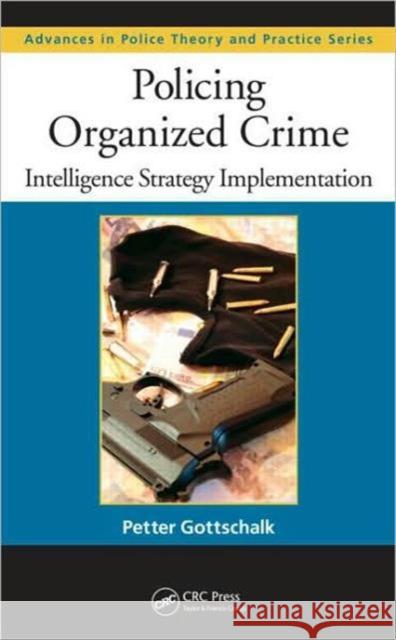Policing Organized Crime: Intelligence Strategy Implementation » książka
Policing Organized Crime: Intelligence Strategy Implementation
ISBN-13: 9781439810149 / Angielski / Twarda / 2009 / 286 str.
Policing Organized Crime: Intelligence Strategy Implementation
ISBN-13: 9781439810149 / Angielski / Twarda / 2009 / 286 str.
(netto: 718,58 VAT: 5%)
Najniższa cena z 30 dni: 654,86
ok. 16-18 dni roboczych.
Darmowa dostawa!
When criminal activity is as straightforward as a child s game of cops and robbers, the role of the police is obvious, but today s bad guys don t always wear black. In fact, the most difficult criminals to cope with are those who straddle the gray divide between licit and illicit activity. Many of these nefarious sorts operate on the fringe of society, often acting the part of businesspersons, meeting the demands of otherwise law-abiding clientele with illegally procured or delivered goods. Others, specially trained to occupy positions of responsibility, make the most of position and special knowledge to partake of ill-gotten gains. Then there are the organized crime families and syndicates who make use of common business models to turn dubious undertakings into profitable ventures. Policing Organized Crime: Intelligence Strategy Implementation addresses these very real types of modern criminals. It examines the methods and motives of those operating on the fringes of society, including more obvious outlaws as well as less obvious lawyers, businesspeople, and bankers, social outcasts as well as devoted family people. Written by Petter Gottschalk, an internationally respected police expert in organized crime, this book details the workings of entrepreneurial crime through the use of case studies from around the world. He presents strategies that will alter the thinking and investigative styles of those police charged with the responsibility of preventing and putting a stop to business crimes. Implementation of an effective intelligence strategy is a key element in his thinking. He demonstrates the shrewd skill set required to bring down those criminals who twist the rules of supply and demand with business models designed to maximize illegal gain.
This important resource is a volume in the Advances in Police Theory and Practice Series, which features the work of international experts who provide researchers and those in the field with access to the most advanced tools being employed in police work today. "











